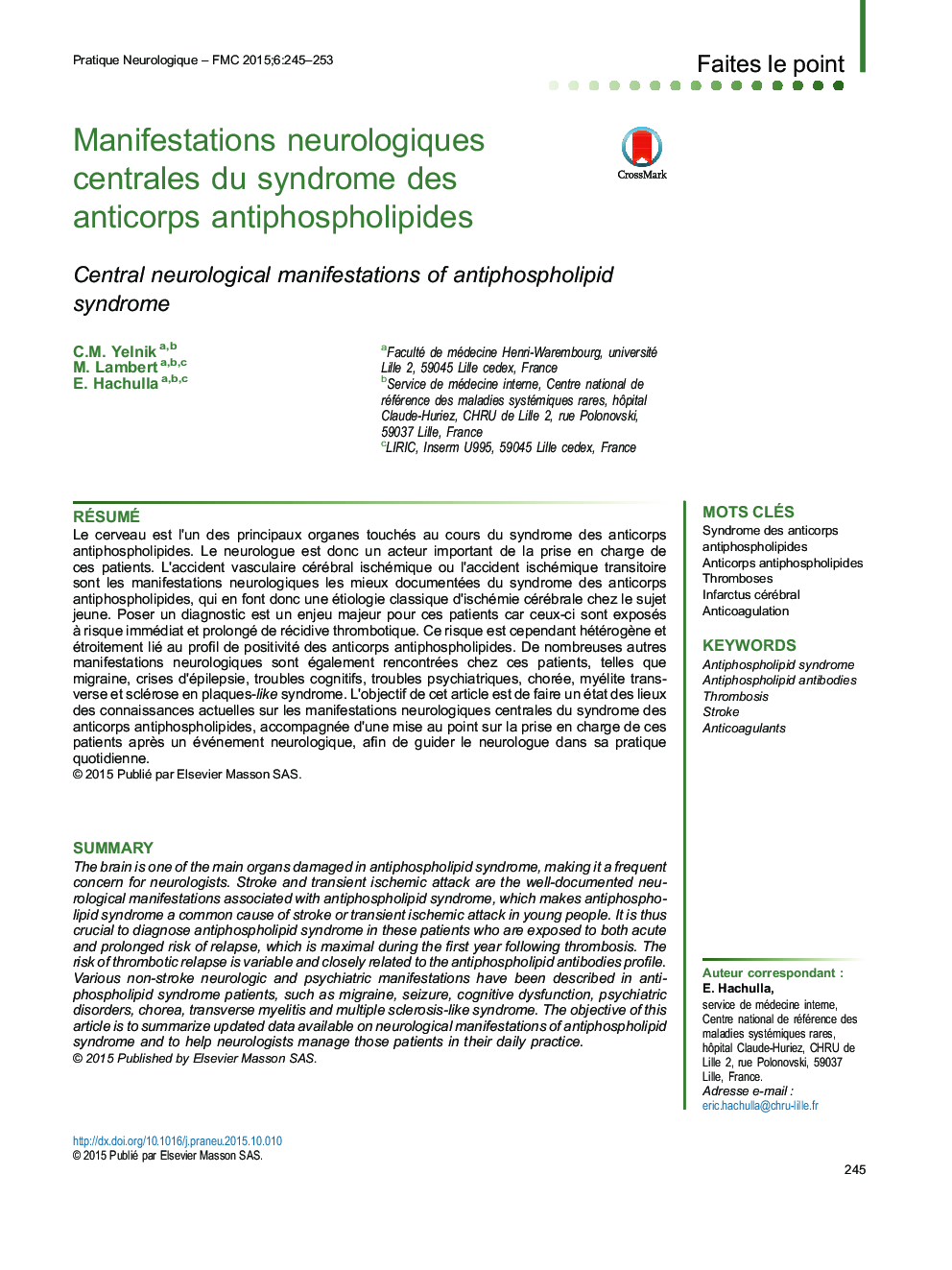| Article ID | Journal | Published Year | Pages | File Type |
|---|---|---|---|---|
| 3087126 | Pratique Neurologique - FMC | 2015 | 9 Pages |
Abstract
The brain is one of the main organs damaged in antiphospholipid syndrome, making it a frequent concern for neurologists. Stroke and transient ischemic attack are the well-documented neurological manifestations associated with antiphospholipid syndrome, which makes antiphospholipid syndrome a common cause of stroke or transient ischemic attack in young people. It is thus crucial to diagnose antiphospholipid syndrome in these patients who are exposed to both acute and prolonged risk of relapse, which is maximal during the first year following thrombosis. The risk of thrombotic relapse is variable and closely related to the antiphospholipid antibodies profile. Various non-stroke neurologic and psychiatric manifestations have been described in antiphospholipid syndrome patients, such as migraine, seizure, cognitive dysfunction, psychiatric disorders, chorea, transverse myelitis and multiple sclerosis-like syndrome. The objective of this article is to summarize updated data available on neurological manifestations of antiphospholipid syndrome and to help neurologists manage those patients in their daily practice.
Keywords
Related Topics
Life Sciences
Neuroscience
Neurology
Authors
C.M. Yelnik, M. Lambert, E. Hachulla,
